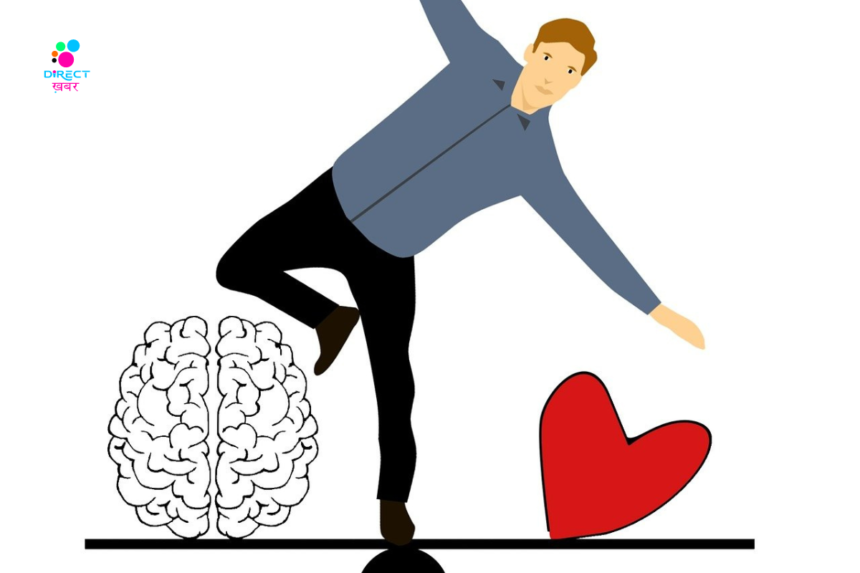Mind-Body Connection: Thoughts’ Impact on Health
The concept of the mind-body connection has gained significant attention in recent years as researchers uncover the profound ways in which our thoughts and emotions influence our physical health. This intricate relationship between the mind and body suggests that our mental and emotional states can have a powerful impact on various aspects of our well-being, ranging from immune function to chronic disease risk. Understanding this connection is not only essential for improving overall health but also for developing effective strategies for prevention and treatment. In this article, we will explore the fascinating interplay between our thoughts and health outcomes, highlighting the latest research findings and practical implications.

The Power of Positive Thinking:
- Research has demonstrated that maintaining a positive outlook on life can have numerous benefits for physical health.
- Positive emotions such as joy, gratitude, and optimism have been linked to lower levels of inflammation, reduced risk of heart disease, and enhanced immune function.
- Techniques such as mindfulness meditation and cognitive-behavioral therapy (CBT) can help individuals cultivate a more positive mindset and improve their overall well-being.
The Impact of Stress on Health:
- Chronic stress has been identified as a significant risk factor for a wide range of health problems, including cardiovascular disease, obesity, and depression.
- Prolonged exposure to stress hormones such as cortisol can weaken the immune system and contribute to inflammation in the body.
- Mind-body practices such as yoga, tai chi, and deep breathing exercises can help reduce stress levels and promote relaxation, thereby mitigating its negative effects on health.

The Role of Beliefs and Expectations:
- Our beliefs and expectations can shape our health outcomes in profound ways, influencing everything from pain perception to recovery from illness.
- The placebo effect, where individuals experience improvements in symptoms after receiving inactive treatments, highlights the power of belief in healing.
- Harnessing the placebo effect through interventions such as placebo pills or sham surgeries underscores the importance of the mind-body connection in medical treatment.
Emotional Health and Disease Risk:
- Mental health conditions such as depression, anxiety, and chronic stress have been associated with an increased risk of developing various chronic diseases.
- Negative emotions and unresolved trauma can contribute to inflammation, weaken the immune system, and disrupt physiological processes in the body.
- Integrative approaches that address both mental and physical aspects of health, such as psychotherapy combined with lifestyle modifications, can be effective in reducing disease risk and improving overall well-being.
Cultivating Resilience and Emotional Intelligence:
- Resilience, the ability to adapt and bounce back from adversity, plays a crucial role in maintaining health and coping with life’s challenges.
- Developing emotional intelligence, which involves recognizing and managing one’s own emotions as well as understanding and empathizing with others, can enhance resilience and promote better health outcomes.
- Practices such as journaling, expressive arts therapy, and social support networks can help individuals cultivate resilience and emotional intelligence.
Lifestyle Factors and Mental Health:
- Healthy lifestyle choices, including regular exercise, balanced nutrition, adequate sleep, and social engagement, are essential for both mental and physical well-being.
- Exercise has been shown to have antidepressant effects and improve mood by increasing the production of endorphins and other feel-good neurotransmitters.
- A nutritious diet rich in fruits, vegetables, whole grains, and omega-3 fatty acids can support brain health and reduce the risk of depression and anxiety.
The mind-body connection offers a compelling framework for understanding the intricate relationship between our thoughts, emotions, and physical health. By recognizing the profound impact of our mental and emotional states on well-being, we can empower ourselves to take proactive steps towards promoting health and healing. Whether through cultivating positive emotions, managing stress, addressing negative beliefs, or adopting healthy lifestyle habits, there are numerous strategies we can implement to optimize the mind-body connection and enhance our overall quality of life. Embracing this holistic approach to health can lead to profound transformations, allowing us to live with greater vitality, resilience, and well-being.






